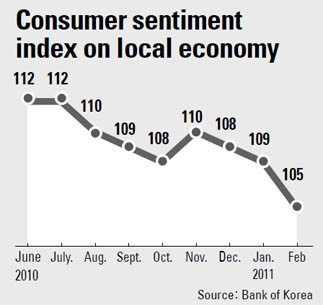
Market Information > Food News Clipping
Food News Clipping
February 25, 2011
2011.02.25
'Typo' in Korea-EU FTA Threatens Ratification [English, CSY]
http://english.chosun.com/site/data/html_dir/2011/02/24/2011022401214.html
Summary: Some figures in the Korea-EU FTA submitted by the government to the National Assembly in October last year are different from the English-language original, it emerged Wednesday. The Ministry of Foreign Affairs and Trade admitted the mistake, but lawmakers are angry that it pushed for ratification without correcting them. Park Joo-sun of the main opposition Democratic Party on Wednesday said the ministry made a mistake in the course of translating the FTA into Korean and mistyped the percentage of non-originating material permitted for toys and wax goods at 40 percent and 20 percent respectively instead of 50 percent. "If this version had been ratified, we'd have made a considerable loss in tariffs and been subject to an international ridicule," Park said.
http://www.koreatimes.co.kr/www/news/nation/2011/02/116_82033.html
Full text:
Higher food costs hurt sentiment [English, CSY]
Outlook is the weakest since May 2009
http://joongangdaily.joins.com/article/view.asp?aid=2932694
Summary: The rise in food prices, partly caused by the outbreak of foot-and-mouth disease, caused consumer confidence this month to slump to its lowest level since May 2009, the central bank said yesterday. The consumer sentiment index - which measures attitudes on the economic outlook, living conditions and future spending - stood at 105 for February, down from 108 in January. A reading above the benchmark 100 means optimists outnumber pessimists. The index, widely used to gauge the future direction of private spending, has stayed above the 100-point level since May 2009. The survey, based on a poll of 2,071 households in 56 major cities, was conducted from Feb. 11-18.

http://www.hankyung.com/news/app/newsview.php?aid=2011022350301&sid=0105&nid=005<ype=1
Summary: Russian vice prime minister commented on Feb. 23 that
4. LIVESTOCK ISSUES
FMD-related damages hover around 3 tln won: farm minister [English, CSY]
http://english.yonhapnews.co.kr/business/2011/02/24/0501000000AEN20110224011000320.HTML
Summary: Damages caused by the severest foot-and-mouth disease (FMD) outbreak in
PM blames climate, FMD for inflation [English, CSY]
http://www.koreatimes.co.kr/www/news/nation/2011/02/113_82031.html
4. MARKETING ISSUES
Jonny Rockets to Open its First Store in
http://www.yonhapnews.co.kr/economy/2011/02/24/0318000000AKR20110224065600003.HTML
5. OTHER MISCELLANEOUS ISSUES
Imported Seafood Takes over Dining Table due to Fish-flation [Korean, OSY]
http://news.donga.com/Economy/Market/3/0108/20110223/35073620/1
Summary: A recent visit to Noryangjin Fishery Market revealed that imported seafood accounted for much of the seafood supply in
Carrefour
http://www.hankyung.com/news/app/newsview.php?aid=2011022345591&nid=000<ype=1
The information in this report was compiled by the Agricultural Trade Office (ATO) at the U.S. Embassy in Seoul, South Korea. The press summaries contained herein do NOT reflect USDA, the U.S. Embassy, or other U.S. government agency official policy or view point. U.S. food exporters can learn more about market opportunities in South Korea by reviewing ATO Seoul’s Exporter Guide and other reports available at www.fas.usda.gov by clicking on “attaché reports”.
Agricultural Trade Office, U.S. Embassy - Seoul
Tel: 82-2-6951-6848 Fax: 82-2-720-7921
Email: atoseoul@state.gov